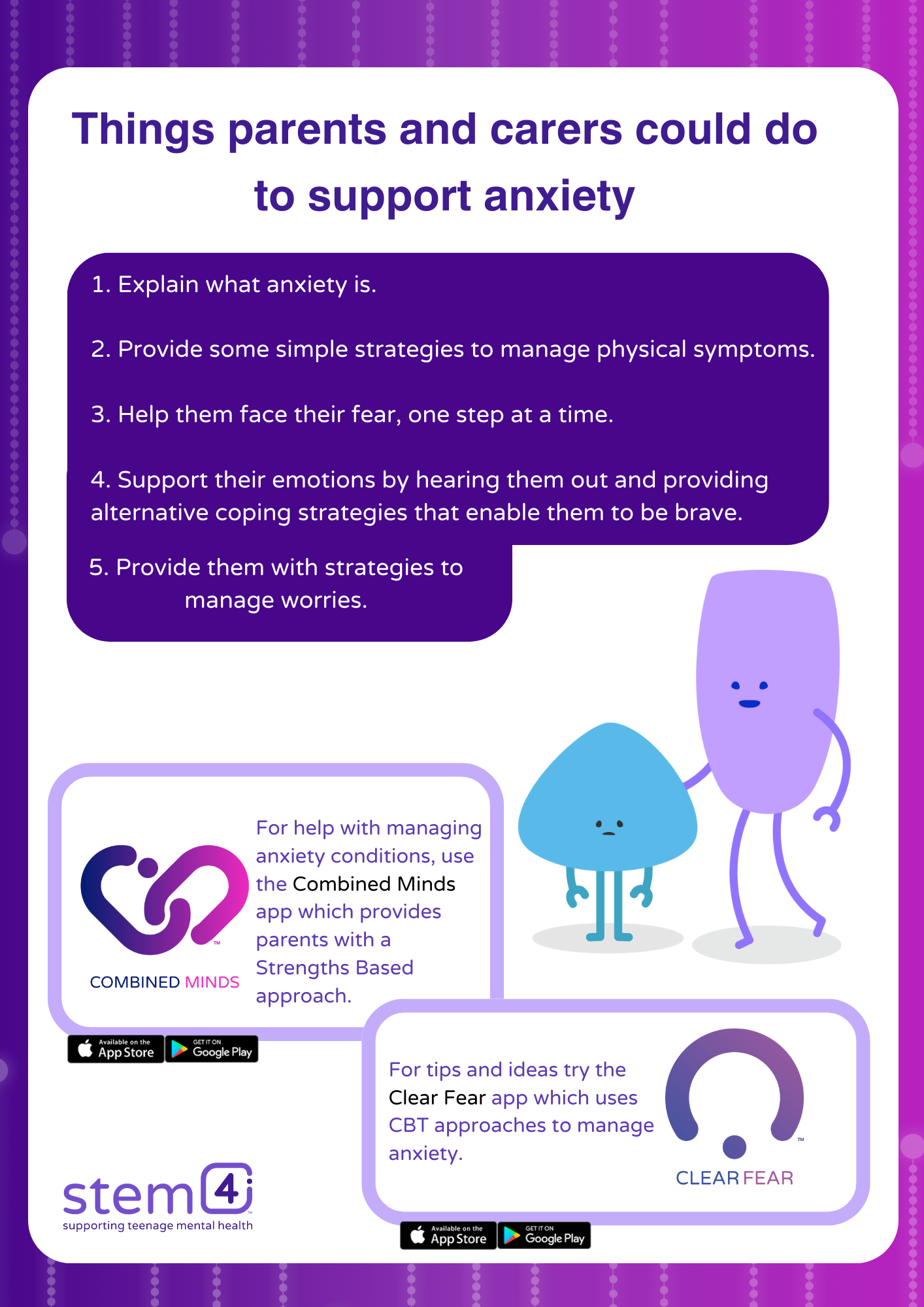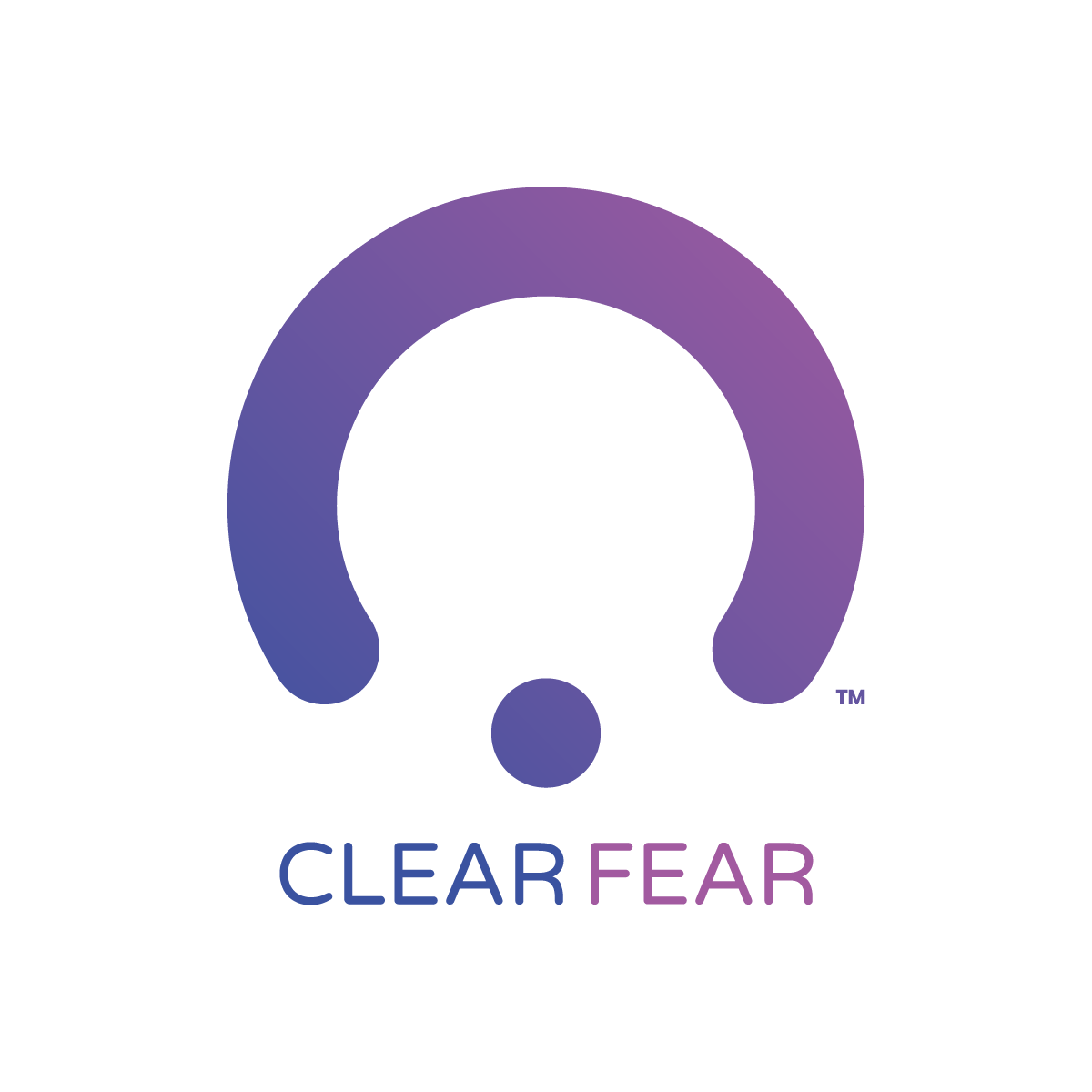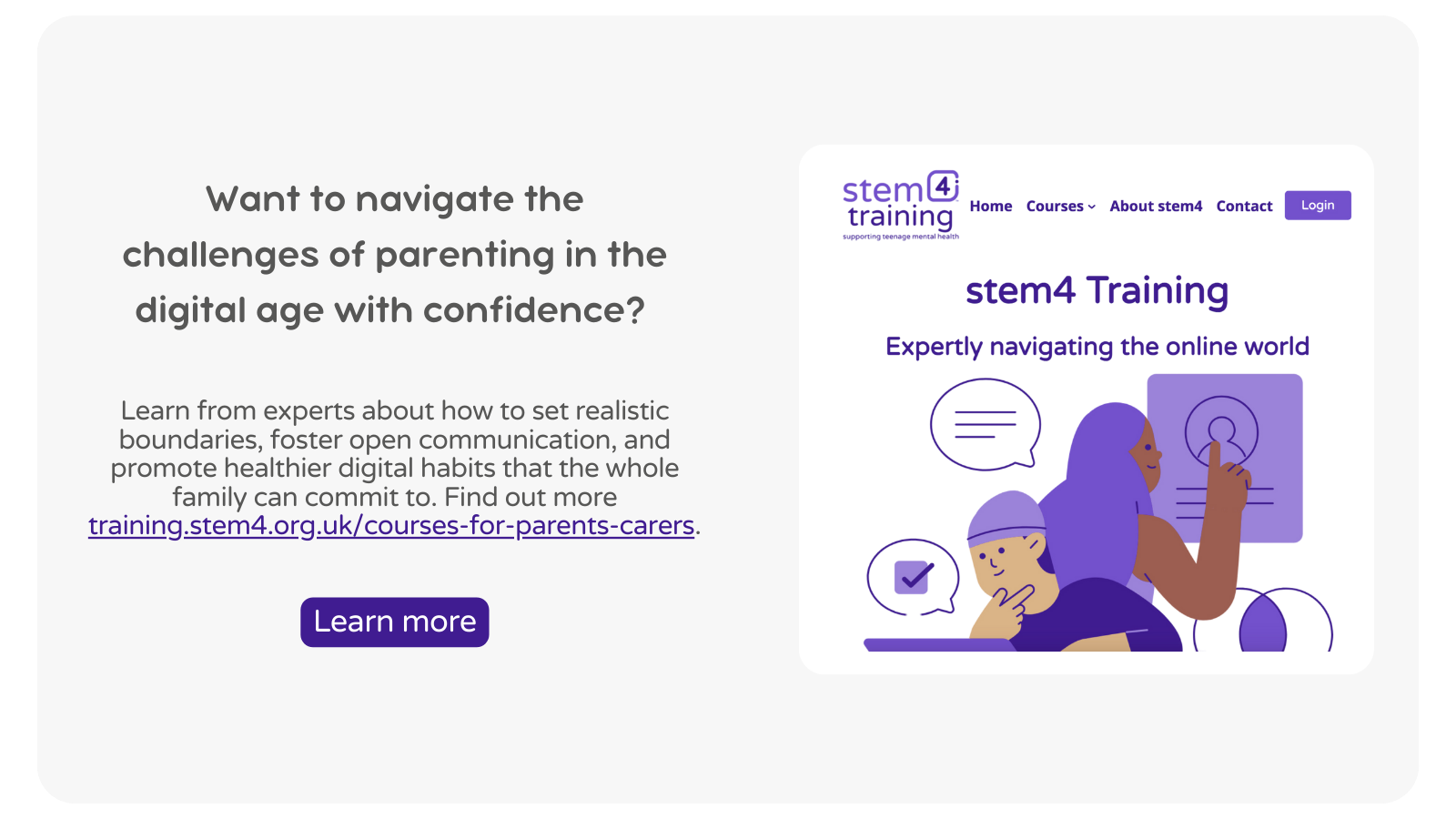Anxiety
For parents/carers
Anxiety is very common in teenagers and can take many forms of general fearfulness. Being anxious is common to all of us and is part of development.
Developmentally arising anxieties include separation anxiety when you are around 2 or 3 years old, fears of the dark and other specific fears in early childhood, fear of death in middle childhood and social worries in teenage years. However, sometimes anxieties that are part of development become anxiety disorders.

An anxiety disorder is an anxiety condition that lasts a long time, has a lasting negative impact on the child or young person, is developmentally not expected (for example, separation anxiety in your teens). Some examples of anxiety disorders include Generalised Anxiety Disorder (GAD), panic attacks, phobias, post-traumatic stress disorder, social anxiety disorder and Obsessive Compulsive Disorder.
You may be aware of what may have triggered the anxiety disorder (for example, a frightening experience) but sometimes it may not have an easily understood cause. Anxiety disorders respond very well to psychological treatment together with self-care that includes a balanced diet, good amounts of sleep and exercise.
Emotionally Based School Avoidance
Children and young people can feel anxious about going to school or college for many reasons. Sometimes the anxiety that’s felt can be so high that it can get in the way of going to school or college at all. This is called Emotionally Based School Avoidance (EBSA) – find out more about EBSA here.
Why not discuss your concerns with your GP and find out what resources are available in your area?
You can also try the Clear Fear app. It works on helping managing thoughts, behaviours, emotions and physical symptoms of anxiety. Developed by a clinical psychologist with feedback from young people and other clinicians, it uses a form of treatment called Cognitive Behaviour Therapy or CBT.
Four steps to assist with change
Visit our Further Advice page for details of other organisations that can help.



